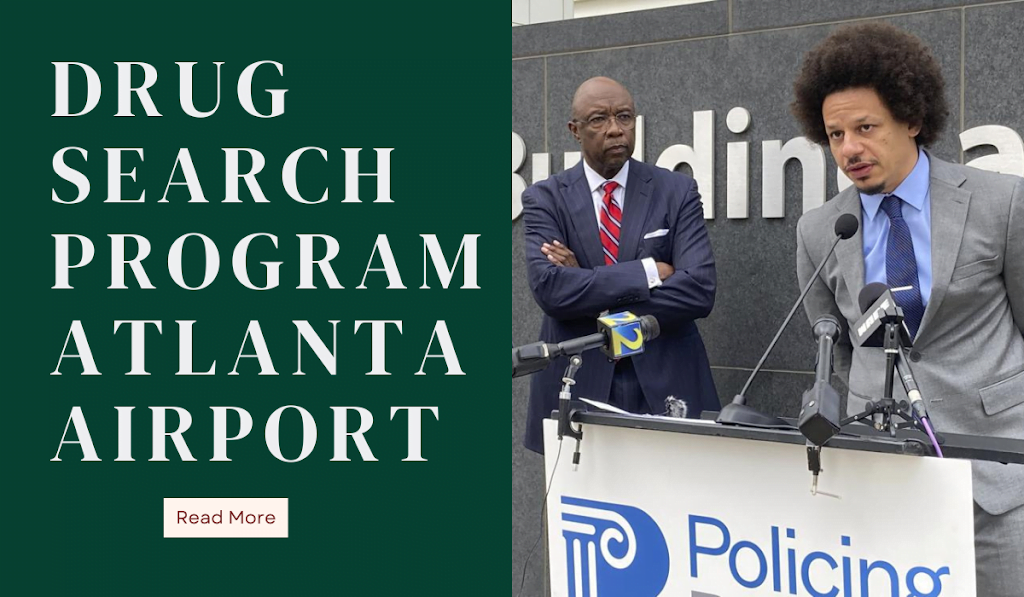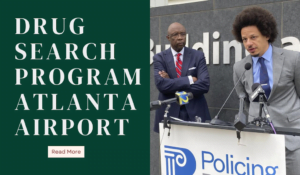Eric André and Clayton English are fighting against a police program at the Atlanta airport that they say violates the constitutional rights of airline passengers, especially Black passengers, through racial profiling and forced searches right before they board their flights.
The two men, who are well-known comedians and actors, say that police officers picked them out because they are black during separate stops about six months apart and questioned them about drugs while other passengers watched.
In an interview, André said, “People were staring at me, and I looked suspicious even though I hadn’t done anything wrong.” He called the experience “dehumanizing and demoralizing.”
Even though the program’s stated goal is to stop drug trafficking, the lawsuit says that drugs are rarely found, criminal charges are rarely filed, and the cash seized gives the police department a big financial boost.
The lawsuit says that Clayton County police officers and investigators from the district attorney’s office stop people at random on the narrow jet bridges that people use to get to planes. Before people get on their flights, the officers take their boarding passes and IDs, question them, and sometimes search their bags, the lawyers say in the lawsuit.
In an interview, André said, “People were staring at me, and I looked suspicious even though I hadn’t done anything wrong.” He called the experience “dehumanizing and demoralizing.”
The police department says the stops are “random” and “consensual encounters,” but lawyers say that in reality, the stops are forced and the people who are stopped are chosen based on their race in a disproportionate way.
Julia Isaac, a spokeswoman for the Clayton County police, said that the department doesn’t talk about lawsuits that are still going on.
From August 30, 2020, to April 30, 2021, there were 402 jet bridge stops, and for 378 of them, the passenger’s race was recorded. The lawsuit says that of the 378 people who rode the bus, 211, or 56%, were Black, and that people of color made up 258 stops, or 68%.
The lawsuit says that during those 402 stops, three people had drugs taken away from them. One person had about 10 grams of drugs, another had 26 grams of “suspected THC gummies,” and a third had six prescription pills without a prescription. The first and third people were the only ones charged.
More than $1 million in cash and money orders were given by 25 passengers at these 402 stops. The lawsuit says that all but one of them were allowed to keep going on their trips, and only two of them were charged because they also had drugs. The lawsuit says that eight of the 25 people who had money taken from them fought back, and Clayton County police settled each case by giving back a lot of the money.
In the lawsuit, the lawyers say that carrying a lot of cash doesn’t mean that someone is involved in illegal drug activity. They point out that people of color are less likely to have bank accounts and are more likely to travel with a lot of cash.
The lawsuit says that English was stopped on his way to work in Los Angeles on October 30, 2020. He was flying from Atlanta, where he lives, to Los Angeles. André had just finished filming for HBO’s “The Righteous Gemstones” and was on his way from Charleston, South Carolina, to his home in Los Angeles on April 21, 2020, when he was stopped after a layover in Atlanta.


